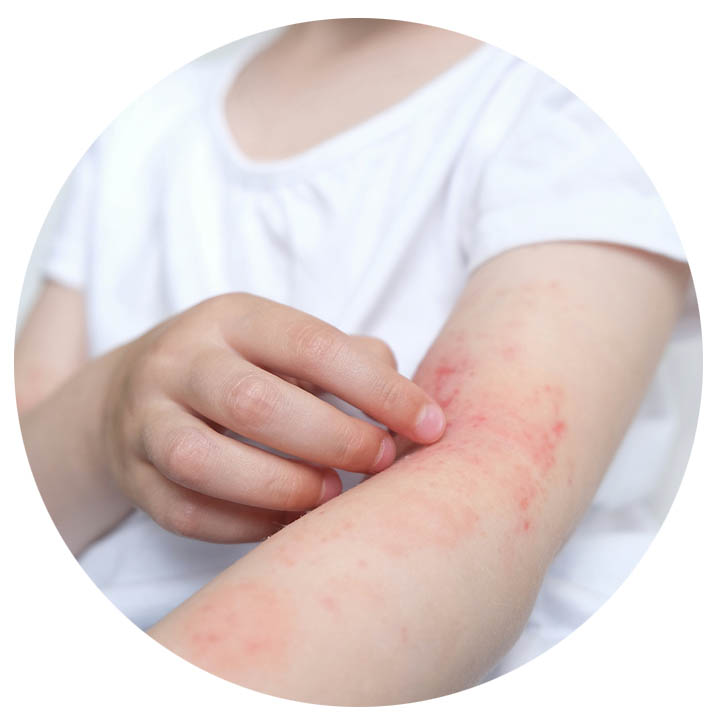
Eczema is a general term used for several common types of skin rashes, which share the features of skin irritation, redness, weeping, scaling, and itching. The two main drivers of eczema are skin barrier disruption and an exaggerated immune response. People who live in dry climates such as Denver, Colorado are more likely to develop eczema.
- Atopic dermatitis: Itchy, rashy skin which typically begins in childhood, often coexists with asthma and hay fever.
- Allergic contact dermatitis: a red, itchy, weepy reaction due to a contact allergy, such as poison ivy.
- Irritant dermatitis: a localized reaction where the skin has come into contact with something irritating, such as an acid, cleaner, or other chemical.
- Dyshidrotic eczema: clear, deep bumps and blisters on the palms and soles that itch and burn.
- Nummular eczema: coin-shaped patches of irritated skin that may be crusted, scaling, and itchy.
- Hand eczema: redness, dryness, scaling, and cracking of the skin on the hands, usually due to excess washing and harsh detergents or chemicals.
Treatment of Eczema
When eczema is due to contact allergy (such as poison ivy), avoidance of the offending allergen will usually prevent the rash from recurring. Individuals with a tendency toward chronic eczema must develop a good skin care routine, avoid things that lead to flares, and treat symptoms when they occur.

